In a blow to US mining, Biden plans to source metals for electric vehicles from other countries
It turns out that President Joe Biden will not support the domestic mining industry, after all. According to Reuters:
(Reuters) – U.S. President Joe Biden will rely on ally countries to supply the bulk of the metals needed to build electric vehicles and focus on processing them domestically into battery parts, part of a strategy designed to placate environmentalists, two administration officials with direct knowledge told Reuters.
The plans will be a blow to U.S. miners who had hoped Biden would rely primarily on domestically sourced metals, as his campaign had signaled last autumn, to help fulfill his ambitions for a less carbon-intensive economy.
Rather than focus on permitting more U.S. mines, Biden’s team is more focused on creating jobs that process minerals domestically into electric vehicle (EV) battery parts, according to the people.
While this may surprise the labor element of the Democrat party, much like the cancelation of the Keystone XL Pipeline on the Biden administration’s first day in office, everyone else saw this coming a mile away. In fact, American Experiment predicted this exact outcome. Anyone who didn’t see this coming just didn’t want to face the music.
Interestingly, the exact same Reuters reporter who wrote the story claiming Biden will not support domestic mining for EV materials wrote the story “signaling last autumn” that Biden would support domestic mining for this purpose. American Experiment called “BS” on that bluff, as it unraveled, and it appears our skepticism was vindicated.
Instead of employing Americans in high-paying mining jobs, the Biden administration claims they wish to import these metals and minerals from “allies,” which is easier said than done. According to Reuters:
The approach would see the United States rely on Canada, Australia, and Brazil – among others – to produce most of the critical raw materials needed, while it competes for higher-value jobs turning those minerals into computer chips and batteries, according to the two sources.
EVs use much more material than conventional cars, and wind turbines and solar panels are much more mineral intensive than coal, natural gas, or nuclear power plants.
According to a recently-released study from the International Energy Agency, EVs use more than four times more materials than conventional cars, with copper, lithium, nickel and cobalt being used in far greater quantities.
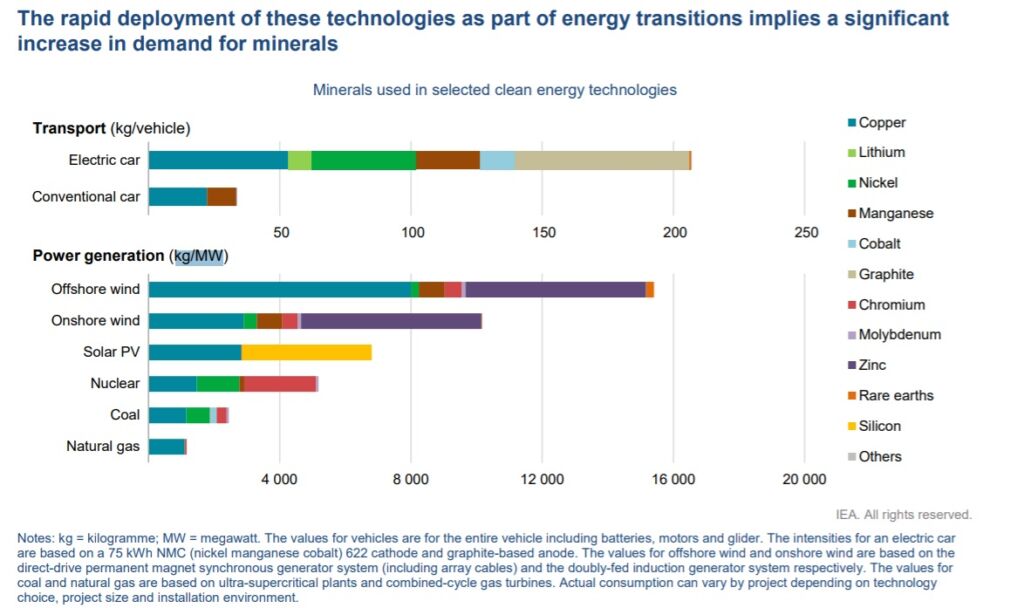
The Biden administration’s lip service to purchasing these materials from allies is simply a cover-up for the fact that they probably won’t. Here we look at the global production statistics from the US Geological Survey for copper, nickel, cobalt and lithium to demonstrate our point.
Copper
USGS data show that the United States produced more copper in 2020 than Australia or Canada, and nearly produced more than these two countries combined. This means Biden’s assertion that it will be these allies that meet demand if we deny mining opportunities to Americans is unrealistic. In reality, these materials will likely come from Chile, Peru, China or the Congo.
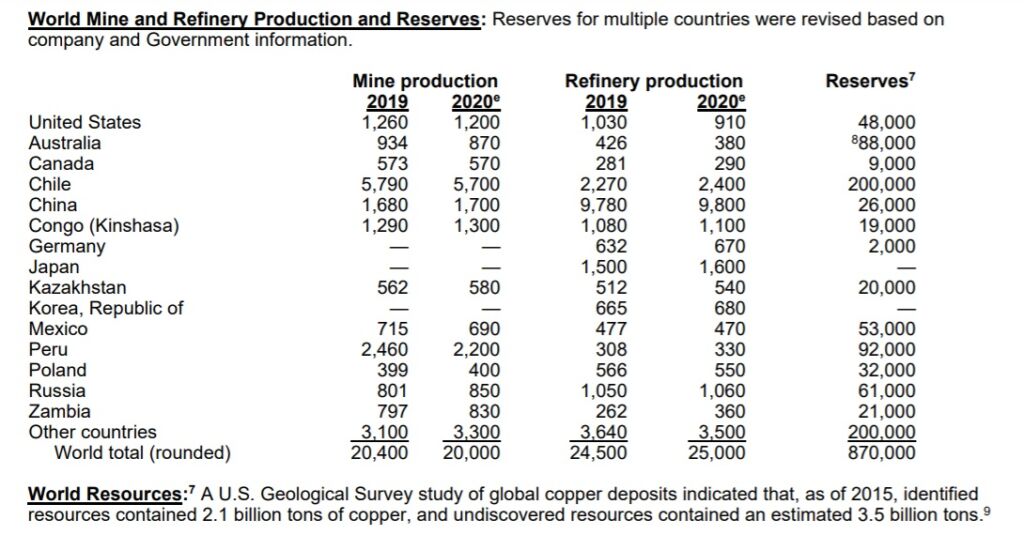
Nickel
Here, the United States is a very small player, whereas Canada and Australia each produce much more nickel. However, these allies still produce far less nickel than Indonesia, New Caledonia, and Russia. Australia clearly has the reserves to increase production, so this assertion is less far-fetched than the idea that these countries will supply the US with copper.
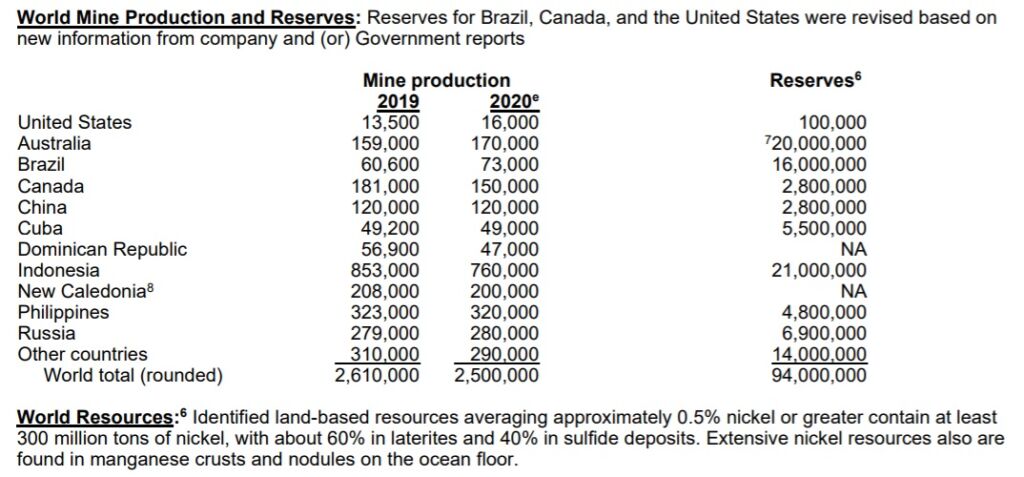
Cobalt
More than two-thirds of global cobalt production comes from the Democratic Republic of the Congo, where as many as 40,000 children work in cobalt mines. Other major producers are Russia, Australia, the Philippines, Cuba and Canada.
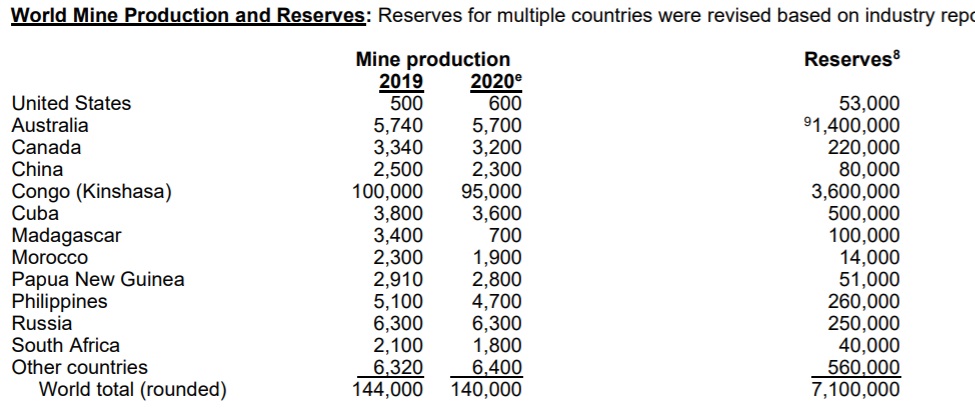
Australia and Canada produce far more cobalt than the United States, but together, they account for only 6.4 percent of total cobalt production. In fact, these two countries produced a combined tonnage of just 8,900 metric tons in 2020, but the United States consumed between 9,000-12,500 metric tons in 2020.
This means these countries don’t produce enough cobalt to meet our current demand, let alone meeting the growing demand from EV mandates and subsidies. The idea that we will be relying on allies to provide these materials, rather than antagonistic regimes, is foolhardy.
Lithium
Australia is the largest producer of lithium in the world, with Chile and China as distant runner-ups. The US consumed 2,000 metric tons of lithium in 2021, which means Australia is probably already providing much of the lithium used in products in the US.
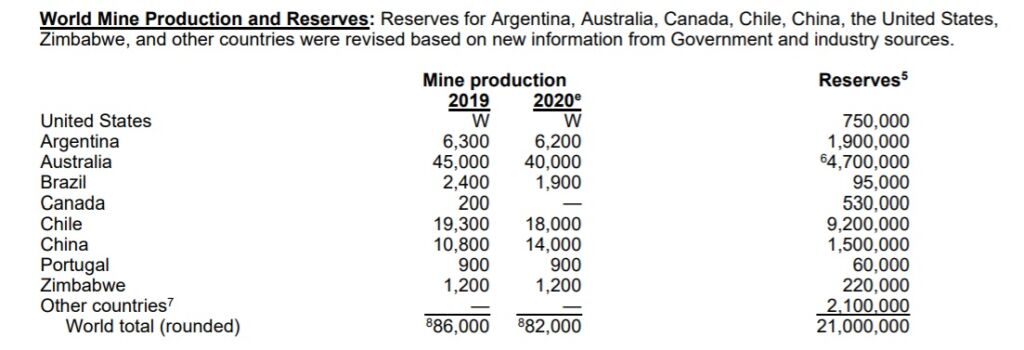
The Biden administration’s assertion that we will import metals and minerals from allies is not as realistic as the administration claims. Allies have limited capacity to provide the copper, nickel and cobalt needed for American consumers. Domestic production would help fill the supply gap.
Biden’s decision to rely on imports, rather than permit mining domestically, will hit states like Minnesota, Alaska, Arizona and Nevada the hardest and make America dependent upon foreign nations for the minerals we use everyday.
Biden’s decision to import essential metals, rather than permit new American mines likely hurts Minnesota the most. This is because the Duluth Complex contains 34 percent of America’s copper supply, 95 percent of our nickel, 88 percent of our cobalt, 51 percent of our platinum, and 48 percent of our palladium.
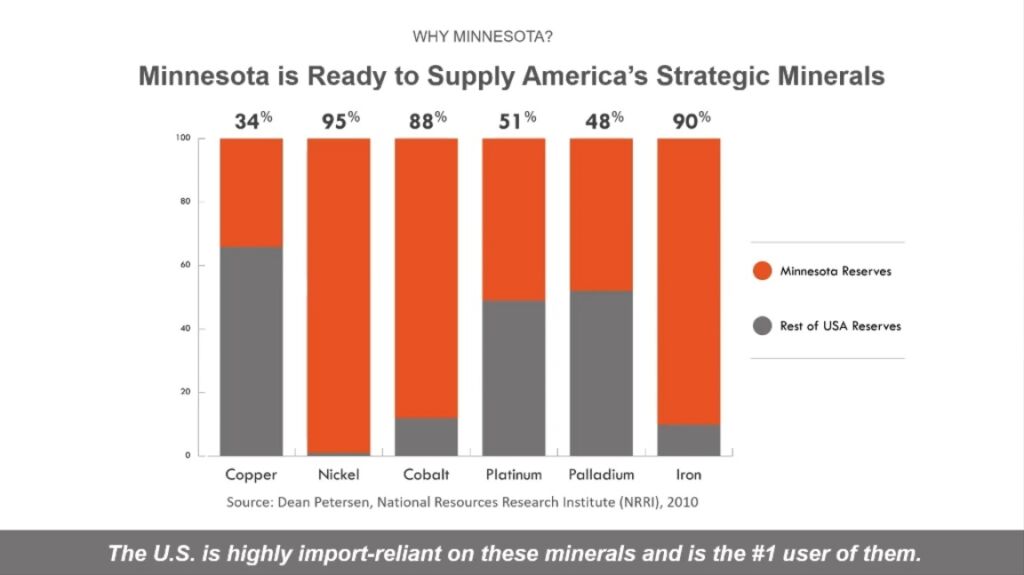
American Experiment’s recently released study Updating Prosperity determined that responsibly developing Minnesota’s copper, nickel, cobalt and titanium deposits could have a massive positive impact on our economy, producing up to 14,850 new jobs and adding $5.9 billion to our state’s GDP.

More important than these raw statistics is the impact mining would have on the lives of Minnesotans. By providing access to high-paying jobs, this sector could help build stronger families and communities by raising tax revenue for local schools and county government services and by injecting more money into local economies.
Biden’s policies deny these opportunities to hardworking Minnesotans only to make the US more dependent upon other countries for the minerals we need. Instead of killing these projects, he should be working with companies to ensure mining is done in the most environmentally friendly way possible.